I was born and raised in Hong Kong. Here are the 6 best and 6 worst things about the city.
Faye Bradley

- I was born and raised in Hong Kong.
- There's no shortage of great food, but the cost of living — especially the rent — is high.
I live in Hong Kong — one of the world's most expensive cities. It's renowned for world-class dining, shopping, and nightlife, but it does have some drawbacks.
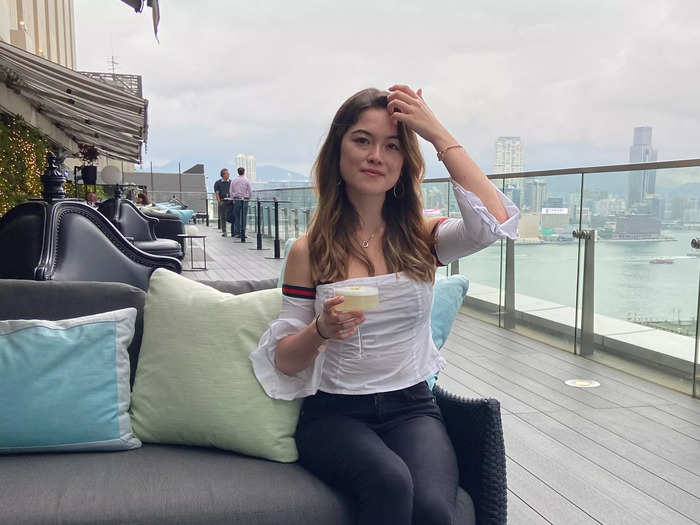
I was born and raised in Hong Kong, and after spending three years studying at the University of Leeds in the UK, I decided to move back.
Most people associate Hong Kong with towering skyscrapers and bright neon signs, but that's not the case everywhere. The region has 263 outlying islands to explore. I grew up in a small village in the Sai Kung countryside, a region known for its hiking trails, beaches, and UNESCO sites, located about an hour by bus and train from Central district.
With a population of around 7.5 million people, Hong Kong is one of the world's most densely populated cities. It's the second-most expensive city to live in for expats, according to a recent survey by ECA International.
As a special-administrative region of China, it can be easier for tourists to communicate here than in mainland China, as the official languages spoken are both Chinese — mainly Cantonese and Putonghua — and English.
Tourists are often drawn to Hong Kong for the 77 Michelin-starred restaurants, vibrant shopping scene which ranges from flea markets on Tung Choi Street in Mong Kok to luxury shopping on Tsim Sha Tsui's Canton Road, and incredible nightlife around the world-famous Lan Kwai Fong area, home to over 90 restaurants and bars.
Since returning to Hong Kong, I've noticed a lot of changes happening in the city. Here are the six best and six worst things about living here.
With access to the city and countryside, you really get the best of both worlds.
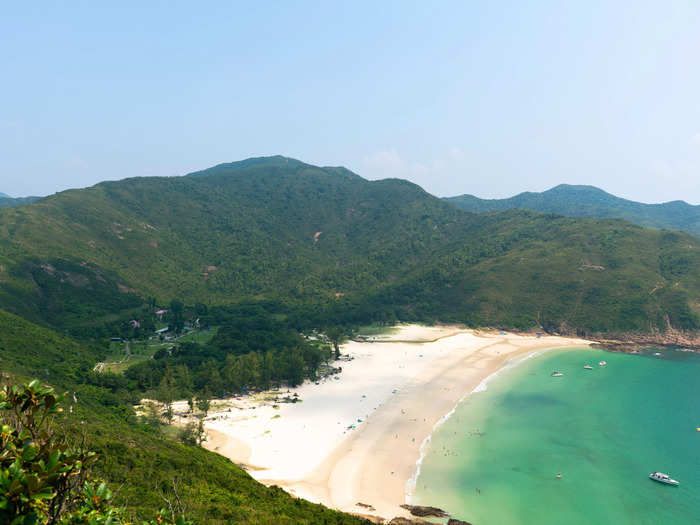
Hong Kong allows residents — and visitors — to combine urban life with the great outdoors. With around 75% of the region being countryside, you can spend the morning shopping and dining in the city and then easily switch to hiking up the Peak, biking around Cheung Chau, or enjoying a relaxing afternoon on Long Ke Wan beach.
Public transportation is affordable and easy to use.
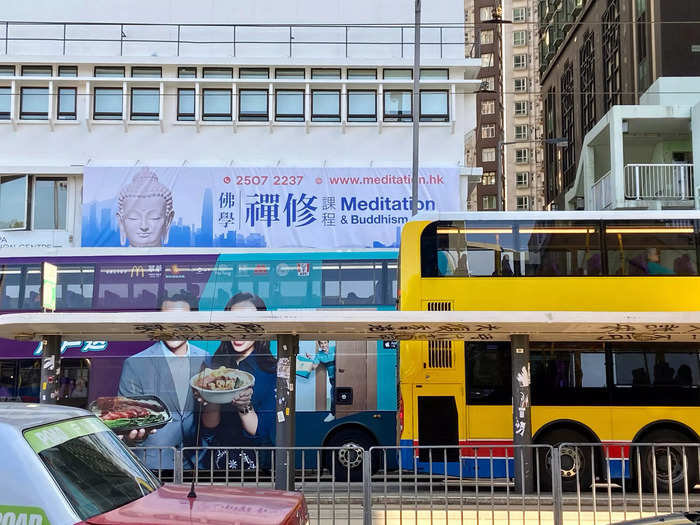
Public transportation is notoriously cheap and cheerful in Hong Kong. Ferries and trams are both great ways to check out the city.
The Mass Transit Railway, better known as MTR, is a train service comprising 99 stations across nine local lines. Rides can cost as little as 50 cents and take just an hour to get from one side of town to the other. The facilities are clean and tourist-friendly, with English signage.
Even as a newbie, it's very easy to meet people.
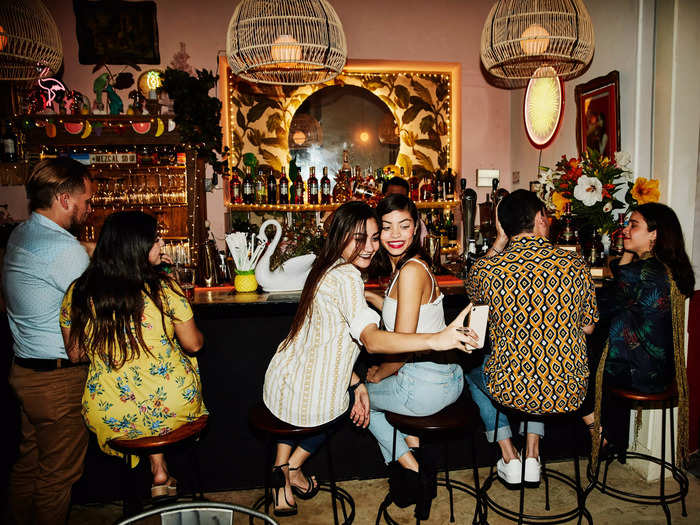
As a former British colony, Hong Kong attracts many expats. Being an international and multicultural city, it offers ample opportunities to meet new people, no matter how long you've been here. Those struggling to decide what to order in a dim sum restaurant can always ask for suggestions, and if you're traveling alone, bars on Peel Street in Soho are a good place to grab a drink and make friends. There are also plenty of pub crawls and pub quizzes in Central.
From dim sum and sushi to burgers and Michelin-starred fine dining, Hong Kongers are spoiled for choice when it comes to food.
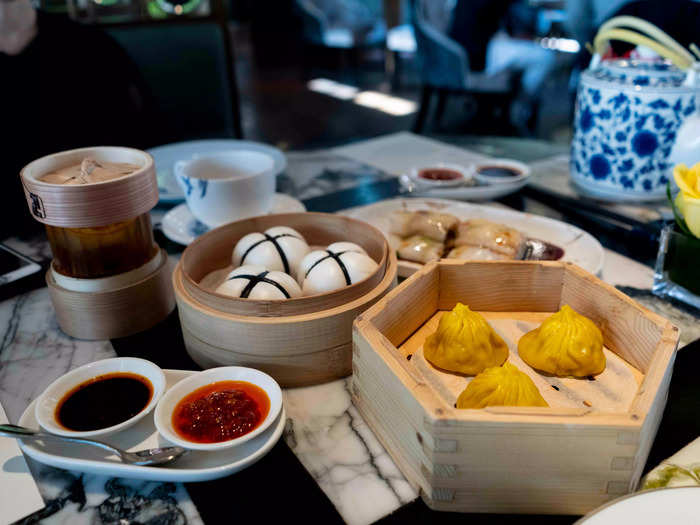
Hong Kong's food is what I missed most when studying abroad in Europe. Here, you'll find every cuisine imaginable and it also caters to every budget, from street food on Shau Kei Wan Main Street East to award-winning fine dining like Lai Ching Heen at the recently reopened Regent and Italian restaurant Noi, both of which were awarded Michelin stars for 2023.
Junk boats are perfect for catching the sunset or beating the summer heat.
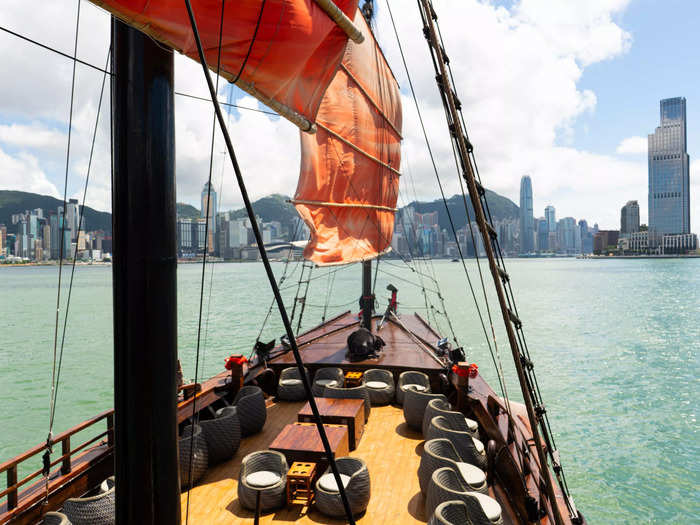
Traditional junk boats — available year-round but most popular during the summer — are a fun way to spend a weekend. They are cost-friendly too, with prices to join a daytime charter starting from $45. Depending on the operator, packages can include catering and activities like banana boat racing or wakesurfing.
In general, the city feels very safe.
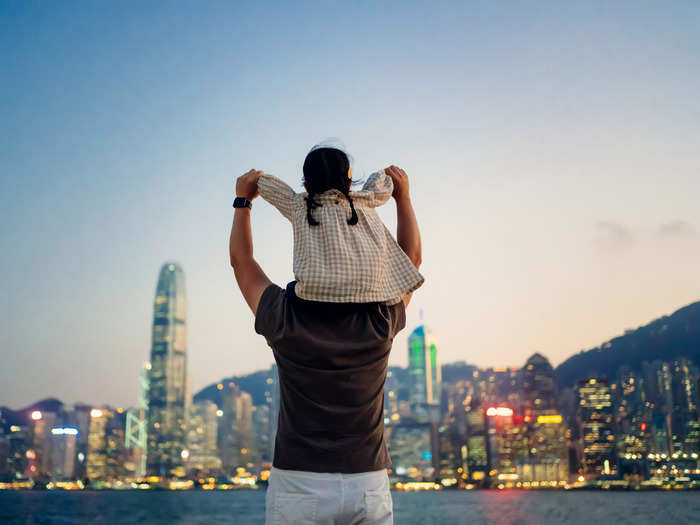
In Hong Kong, I always felt safe growing up. Low crime rates allowed me to roam freely day or night. According to Numbeo's crime index ranking of 142 countries and territories for 2023, Hong Kong ranks as the sixth safest place in the world, putting it above countries like Switzerland, Japan, and Denmark. To put this in perspective, the murder rate in the US is 764 times more than Hong Kong per 100,000 population, per Nation Master.
On the other hand, living in a city has its downsides, as it can feel very congested, busy, and stressful at times.
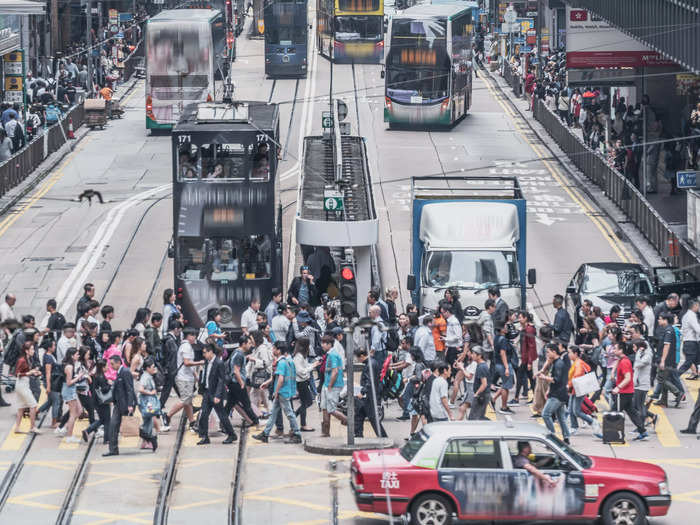
City life can be isolating. Hong Kongers are fast-paced, money-driven, and always rushing, which can feel overwhelming.
Property prices are crazy high.
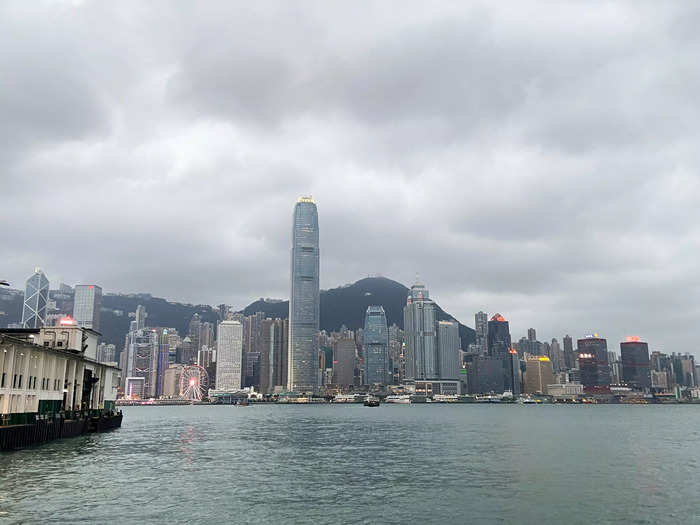
Hong Kong ranks high among the world's priciest markets to rent in. According to Numbeo, Hong Kong ranks second — after Singapore — for most expensive country/territory in the world for a one-bedroom apartment, costing about $2,274 per month to live in the city center.
I live outside the city to get more bang for my buck, but it's still expensive and cramped.
Mental health is often overlooked and still considered a "taboo."

In Asia, mental health recognition lags behind, and anxiety rates heightened during the pandemic. A report on Science Direct found that stress levels in Hong Kong increased by 28.3% and the prevalence of anxiety went up by 42.3% during the COVID-19 outbreak, compared with levels in 2016 and 2017. Some great organizations offer support, but stigma persists.
Mind HK, one of the city's highly regarded mental health charities, surveyed 1,210 randomly selected adults across Hong Kong on their attitudes and knowledge of mental health in the city. They found that 71% of respondents were unwilling to live with people who have mental health issues and one in three were willing to end friendships with those diagnosed.
Imported foreign goods at supermarkets are pricey.
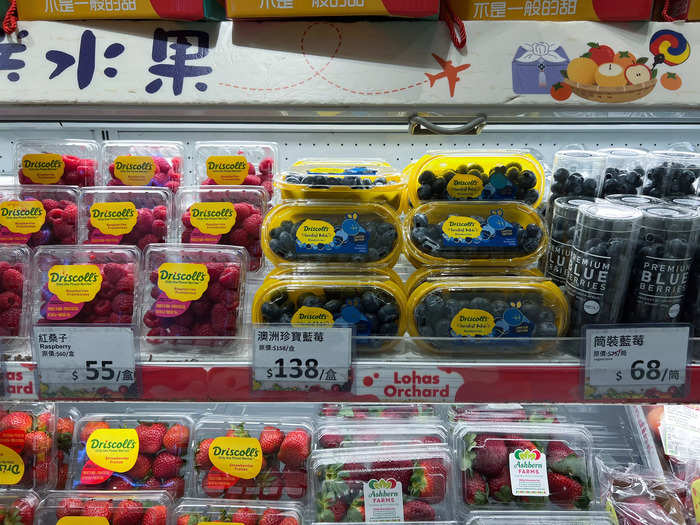
Groceries in Hong Kong are also very expensive, as dairy products, fruit, and meat are often imported. A box of grapes from Japan can cost as much as $44, 150g of blue cheese is typically priced upwards of $15, and a box of blueberries can go for $17.
There are other options, like wet markets, for cheaper produce, but these are often considered less hygienic.
Many companies expect workers to stay long hours, so the work-life balance isn't ideal.
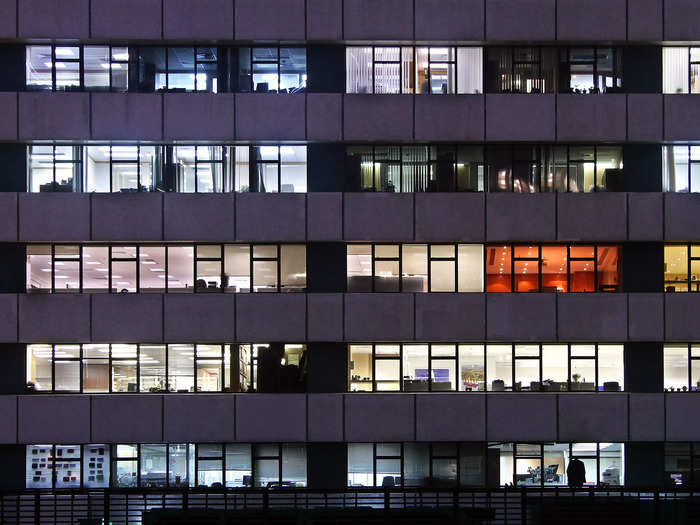
Many companies demand long hours. In June, the Hong Kong Federation of Trade Unions released the results of its polls, stating that more than half of Hongkongers work over 45 hours a week.
In 2022, American research company KISI compared 100 cities around the world to assess their work-life balance. Hong Kong was ranked the secon-most overworked city.
Small businesses are being forced to close due to the gentrification of Hong Kong's most charming neighborhoods.
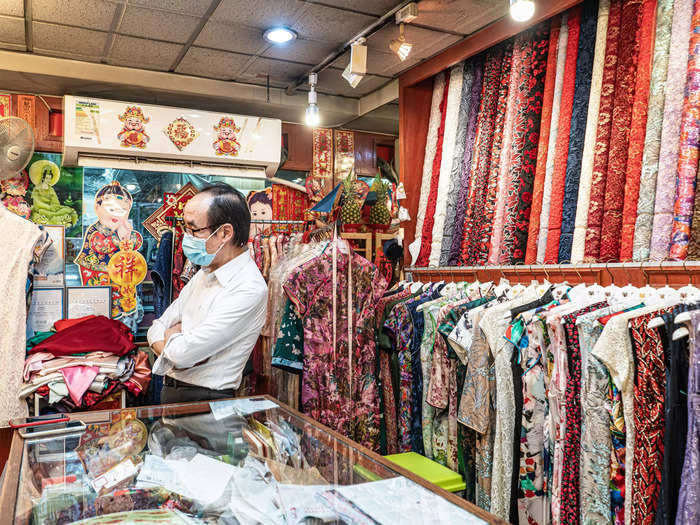
Modernization has its merits, but Hong Kong's gentrification irks locals. Authentic neighborhoods like Sham Shui Po and Wan Chai lose charm as historic sites and family-run businesses vanish for hip coffee shops. Master Kan is one of the last surviving makers of cheongsam — the traditional close-fitting dress.
Despite the disadvantages, I still feel lucky to call Hong Kong home.

After all, it's got the best dim sum in the world. Restaurants like Tim Ho Wan and Chuen Kee Seafood Restaurant have been around since I was a kid, and hopefully they won't be closing their doors anytime soon.
Popular Right Now
Popular Keywords
Advertisement